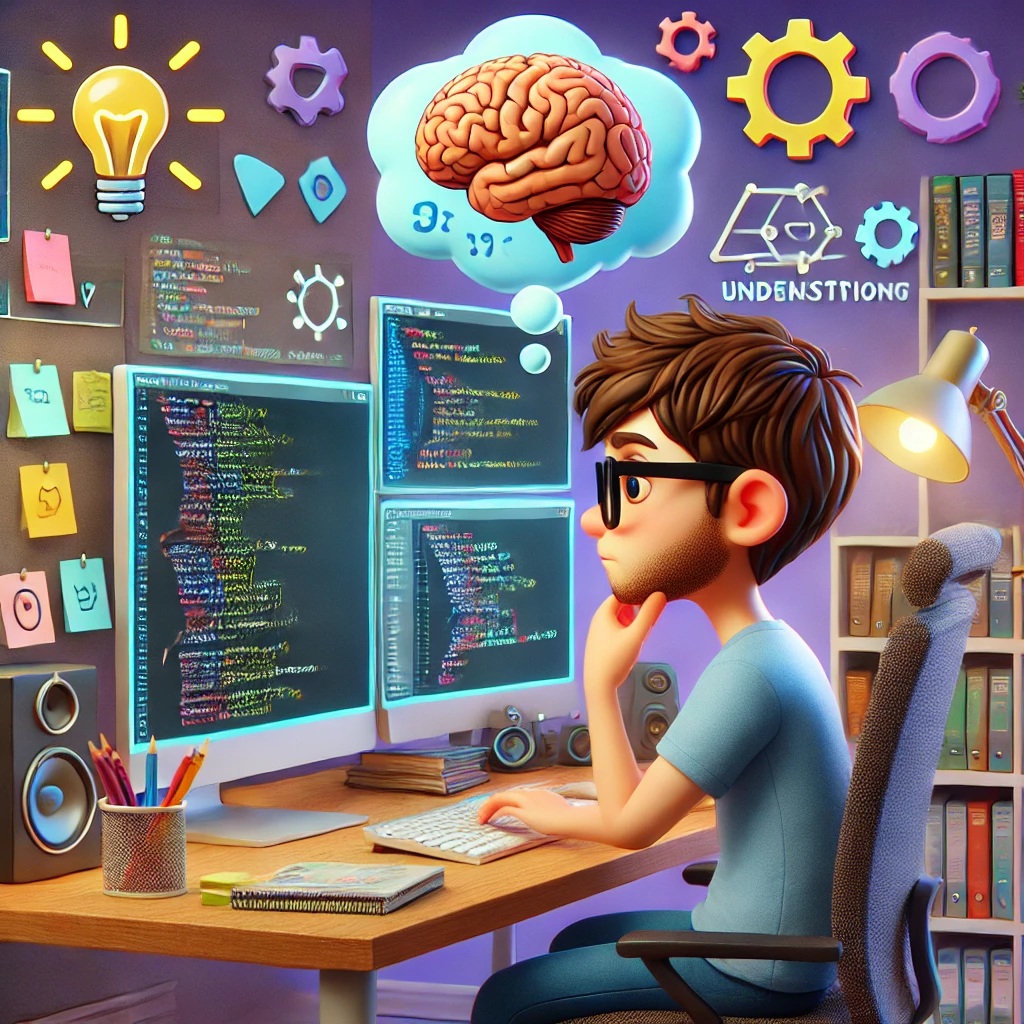In the ever-evolving landscape of software development, the real game-changer isn’t just the code you write—it’s understanding the mind behind it. Dive into the depths of “The Programmer’s Brain” from Yoan Thirion’s Knowledge Base, and you’ll uncover the secrets to mastering your cognitive load and boosting your productivity.
The Cognitive Dance
Programming isn’t just about typing lines of code; it’s a cognitive ballet. Each step—understanding the problem, writing the code, debugging—demands mental agility. The trick? Managing your cognitive load effectively. Too much mental juggling, and you risk burnout. Too little, and you’re not challenging yourself enough.
Memory: Your Secret Weapon
Think of your brain as having two main storage areas: working memory and long-term memory. Working memory is like your RAM—quick but limited. Long-term memory? That’s your hard drive, storing everything you need for the long haul. The goal is to move vital skills and knowledge from working memory to long-term memory, freeing up space for real-time problem-solving.
Mastering Cognitive Efficiency
- Chunking: Break down complex information into smaller, manageable chunks. It’s like splitting a big task into bite-sized to-dos—easier to digest and remember.
- Automation: Automate repetitive tasks. Use scripts and tools to handle the mundane, so you can focus on the meaningful work that truly matters.
- Collaboration: Engage in code reviews and pair programming. Share the cognitive load and learn from each other. Two brains are better than one.
- Refactoring: Regularly clean up your code. A well-organized codebase is easier to understand, reducing the mental effort required to work on it.
Building Mental Models
Your mental models are your internal maps of how systems work. The more accurate and detailed these maps, the better you can navigate complex coding challenges. Invest in learning and updating these models—it’s an investment in your future self.
Embrace Lifelong Learning
The tech world never stands still, and neither should you. Stay curious. Attend conferences, join coding communities, and keep learning. Continuous adaptation keeps your mental models fresh and your skills sharp.
Wrap-Up
By understanding the cognitive mechanics of programming, you can develop strategies that make you a more efficient, effective, and happier coder. “The Programmer’s Brain” offers a treasure trove of insights to help you on this journey.
Source
Inspired by Yoan Thirion’s Knowledge Base. Explore more at The Programmer’s Brain.




